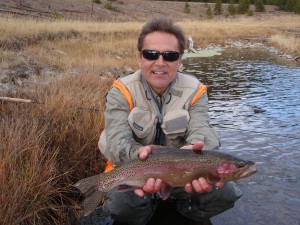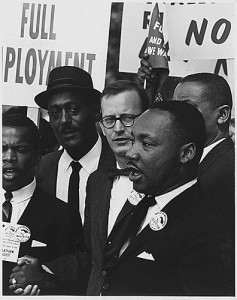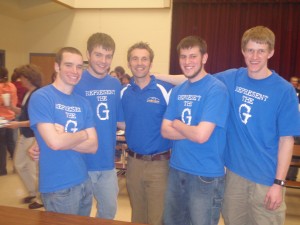Are you audacious? If not, there is no better time to become so than right now, in this moment. We can evoke meaningful change by starting small—anything worthwhile is best tackled in bite-sized chunks. As Team BA member Scotty Black recently reminded me, during a moment of angst, “Big things have small beginnings.” In finding the audacity to think big, we open the floodgates of creativity, unleashing our aspirations and recognizing that the obstacles that paralyze our progress are all-too-often of our own making. In reality, there are no boundaries for our potential to be impactful.
During a recent moment of paralysis and self-doubt from juggling too many projects, which came crashing into my psyche like a rogue wave scouring the North Shore of Kauai, I reminded myself of Thomas Edison’s words, “Many of life’s failures are of people who did not realize how close they were to success when they gave up.” How many times in the life of Martin Luther King, Jr. must he have felt strangled by the burden of leading a movement, striving to positively impact and change the lives of a beautiful people long oppressed by the color of their skin, while enlightening an entire nation about the power of a dream?
Though I grew up in a house without scripture and religion in the traditional sense, I was taught the values and virtues that most religions herald as their contribution to a decent and caring society. Love for the natural world, affinity for the role of the underdog, compassion and humility were regular lessons in our household. Whether it be risking life and limb to save a mule deer stranded on the ice or cheering the dark horse come tourney time, my parents raised my sister and me to be aware of the struggles of others.

One of the many, and perhaps fondest memories of our Sunday outings on the enigmatic waters of Yellowstone National Park.
I always had the feeling my dad—who grew up the son of an Episcopal priest—was uncomfortable with his rebellious straying from the church, but I remain thankful for the fish caught, trails hiked, passes summited and wildlife encountered on those countless Sundays over the years. Though we rarely attended church, my father and mother made sure to instill the qualities of their upbringing that mattered most to them: honesty, character, persistence, love and an unwavering desire to do what is right.
While I refer to my mom as the Mother Theresa of animals—as she never met a stray undeserving of love and a home—it is her insistence that I stand up for those without a voice, whether they be two-legged, finned, winged or four-legged, that perhaps most impacted my work to make a difference. While my mom taught us to lead with our heart, my dad—a golden glove boxer in his day, who during my youth often participated in barroom brawls in the small saloons spattered across NW Montana—sang a different tune. “Mike, you must stand up for what is right, always. You cannot waiver. If you don’t say something when someone says something racist or bigoted, then you are as bad as they are.”
Growing up, I thought this was my dad’s way of teaching me to be tough, to be okay with getting my ass kicked from time to time and to fight for what I believe in. The only fights I can remember getting into as a kid were when I saw someone getting picked on. Being scrappy, sometimes they turned out in my favor, and sometimes I ended up with a broken nose. As I entered college, I saw these lessons from my father as my induction into the Democratic Party—lifting up those who are down, giving everyone a fighting chance and championing the less fortunate.
But reading through my plethora of Martin Luther King, Jr., quotes this morning, I see that my father’s teachings were more than a way of teaching me to scrap or support his leftist political beliefs. I see that my mother’s teachings were more than her hope that I would stand up for a chubby kid or rescue a stray. I now see that these critical life lessons my mother and father shared, while vastly different in approach, were all about what it means to live with grace; with purpose and meaning. Their teachings were about honoring the actions and lives of the bold, brave and courageous leaders of their time, during the civil rights movement of their era.
During some of the more challenging times in our life as a family, when someone is sick, or struggling with disability and immobility, I notice my father will rekindle the spiritual practice that his father long ago taught him. I believe it gives him comfort, as it does so many of religious belief during times of despair. But when my father speaks of my grandfather, who recently passed away, he doesn’t mention the religious institution he dedicated half a century too. Instead he speaks of his wisdom, his brilliance and his wit. And most of all he speaks of his courage. He shares with pride that his father, my grandfather, marched through the streets of Chicago with the great Martin Luther King Jr., as part of the Chicago Open Housing movement.
Though my spiritual beliefs differ from my grandfather, we both share the nickname, “Reverend.” My spiritual practices dwell within the pulse of the ocean, the rugged wildness of the mountains and the rhythmic pulse of the rivers, and I find myself leery of any and all institutions who don’t practice the words of ecologist Aldo Leopold, “A thing is right when it tends to preserve the integrity, the stability, and beauty of the biotic community. It is wrong when it tends otherwise.” While I don’t support the idea that religion gives our society its moral compass, and instead believe it is good sense combined with love in our hearts and a desire to do right, I’m reminded on this day of the power of faith in something bigger than ourselves. We all must find faith in something, for without it we are a rudderless sailboat blowing around at sea. When faith anchors our belief in self and empowers us to pursue our dreams in order to achieve something meaningful, we have found our golden ticket.
But Martin Luther King, Jr., reminds us of even more. He reminds us that faith means little without the audacity to take the leap. “Faith is taking the first step even when you don’t see the whole staircase. “
My grandfather no longer walks this earth as a man, but as my daughter reminds me of all who have passed: “He lives in the spirit world, Daddy.” Though his accomplishments were plentiful, his courage to throw off the shackles of our societal norms, to pursue a life of meaning and purpose, while standing up for those suppressed and in need is his legacy—that is my grandfather.
I can think of few examples demonstrating the power of legacy more profoundly than the celebration of Martin Luther King Jr. Day. On a regular occasion I ask the question, “What would MLK do or think?” For Martin Luther King, Jr. stands as the testament to the power of audacity fueled by the passion to enhance and better the world around us. This is something we can all aspire toward. This is something we must all aspire towards. And in doing so, we honor a man whose unwillingness to settle for the civil injustices of his time inspired a movement that changed our society, a man who laid the very foundation for all of us to lead a meaningful life—as well as leave a legacy for our children.
We will inevitably struggle in our quest to inspire a legacy and live a life that matters, but without suffering, can there be substance? To inspire meaningful change in the world around us, we must be willing to embrace vulnerability, to share our experience. Perhaps there is a direct correlation: the greater the suffering, the more profound the potential for impact.
I want to share a quick—and, for me, powerful—story in honor of this special day. My little sister, Ashley, has always been altruistic. It remains one of her greatest qualities as a mother, wife, teacher and social rights activist. I remember when my parents moved her back to her birthplace, Coeur d’Alene, Idaho, when she was a junior in high school. She grew up in Bellevue, Washington, a suburb of Seattle, rich in ethnic diversity. A constant influx of black teenagers (my fellow hoopsters and brothers) kicked it at the house, many of whom became her adopted brothers, living with us for days, months or even years at a time. It was simply the life she knew. Moving back to CDA (a homogeneously vanilla community) proved a great culture shock for her. That first year, she was crushed and indignant to learn her new high school did nothing to celebrate Martin Luther King, Jr. day. So, five months into her junior year, with few friends, at a new school where she was still looked at as somewhat of an outsider, in an audacious move, she knocked down the doors and broke down the barriers by voicing her concern to the principle—who told her she would need to get the student council to approve her request to facilitate the school’s first known MLK, Jr. day. Lone-ranger style, with ridicule and zero help from her peers—undeterred by the defacement of the signs she created and posted (penises were drawn on the posters)—she put on the school’s first celebration of Martin Luther King Jr. day, bringing racial awareness to an uninformed student body.
In the words of MLK Jr., “He who passively accepts evil is as much involved in it as he who helps to perpetrate it. He who accepts evil without protesting against it is really cooperating with it.”
Stand up for something worthwhile, something noble, something meaningful. Listen to your heart and intuition and do what feels right—not dictated by what others accept.
That, my friend, is what it looks like to Be Audacious.
As the head boys’ basketball coach in a small, rural Montana community, it was always important to me to celebrate the audacious life and legacy of Martin Luther King, Jr. with my team. At the start of each season, I presented a “On A Mission packet” to each member of the team. The mission was clear. “Gardiner Bruins Boys’ Basketball is a place-based athletic program representing its school and community both on and off the hardwood in its quest to build a powerful force of young men that will one day be the leaders of Park County, Montana, and, perhaps, a nation.”
I always seized any opportunity to create meaningful experiences on and off the hardwood for our boys but found it particularly important to expose our players to the cultural diversity and richness that represents the fabric of our society. Thus we created Native American appreciation week, the “Hoops For Haiti” relief fund raiser, volunteer and our annual Martin Luther King Jr. meeting, where we would gather in the locker room to honor and learn about MLK Jr and his legacy. I was always moved by how seriously the boys took this team meeting. Each player brought in a series of quotes, which we used as catalysts to speak about passion, character, injustice, racial intolerance, leadership and brotherhood.
These are a few of my favorite thought provokers from over the years. Take a moment to read the powerful words of a man who led from the heart and inspired the masses.
May we all strive to honor the spirit and legacy of MLK in our quest to pursue our passion, live a life that matters and change the world…
“Every man must decide whether he will walk in the light of creative altruism or in the darkness of destructive selfishness.” Martin Luther King, Jr.
“Hatred paralyzes life; love releases it. Hatred confuses life; love harmonizes it. Hatred darkens life; love illuminates it.” Martin Luther King Jr.
“A man who won’t die for something is not fit to live.”
Martin Luther King, Jr.
“Our lives begin to end the day we become silent about things that matter.” Martin Luther King, Jr. And my favorite of them all: “The ultimate measure of a man is not where he stands in moments of comfort and convenience, but where he stands at times of challenge and controversy.”
Like many toxic ideologies, racism is passed down from one generation to the next. It’s our duty to take advantage of any opportunity we have to introduce the teachings and lessons of someone like Martin Luther King Jr.—what he stood for—into the lives of our youth. Only then can we honor our past, while weaving our story–hopefully one of social justice and racial equality–for a more fair, just and verdant future for all people, regardless of race or gender.
With Nothin’ But Love,
Michael Leach



Exquisite. Heartfelt. Thought provoking. Action provoking. Thank you Rev.
My pleasure Randy. If my words can provoke thought and action then I’m indeed uncovering a level of purpose and meaning in my work. So, I thank you for the gift of your words.
Wow, what a poignant written narrative about your family. Your parents are truly to be commendable having injected such wonderful qualities in you, and now you are teaching your daughter to be the best human she can be. I’m very fortunate that our lives have crossed long time ago, and experiencing that you became such an advocate for people, animals and our environment. Truly admirable attributes and so continue to stay with your direction, more people will follow you. Even at my age, I still may learn one or two things from you.
Thank you for these kind words and for following Otmar. You’ve always been audacious to the core. Much love…